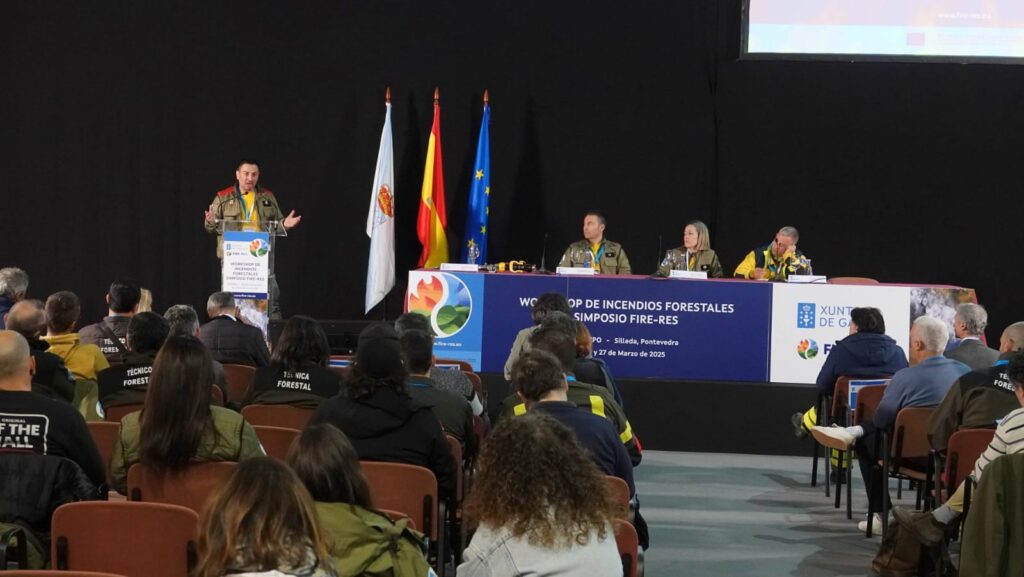In the framework of the FIRE-RES project, in the Living Lab Atlántico the Xunta de Galicia brilliantly carried out a series of workshops strategically designed to address the issue of wildfires from different and innovative perspectives. Based on the active involvement of the local population and with an action-oriented approach, the events demonstrated XUNTA’s key role in innovation and action against extreme wildfire events. This long work culminated in two days of events on 26 and 27 March at SEDEXPO, Silleda, Pontevedra, including an international symposium addressing innovative solutions to improve the resilience of rural communities in the face of this growing threat.

The workshop on Extreme wildfires
This workshop, held on 26 March, opened with a full immersion in the contextual framework, fundamental to enable participants to understand the territorial and socio-economic dynamics influencing the risk of forest fires in Galicia. One of the highlights was the intervention of Conceiçao Colaço (CEABN-InBIO, University of Lisbon) focused on comparing prevention models in Galicia and Portugal: the successful ‘Safe Model Villages (Aldeas modelo)’ and the ‘Village Condominiums (Condominio de Aldeias)’ are rich in valuable key lessons to improve community protection.
Other contributions covered various aspects of dealing with Rural-Wildland Interface scenarios in a holistic perspective. In particular, Juan Taboada, Technical Coordinator of MeteoGalicia, illustrated how different weather conditions can impact the calculation of the wildfire risk index while forestry engineer David Caballero delved into the evolution of socio-economic factors in the rural environment and the crucial role played by civil protection volunteers in forest fires.Ultimately, the workshop was an opportunity to explore innovative management strategies, such as virtual reality training, essential to prepare the population and emergency teams for fires of such high intensity.
This approach not only highlights the critical importance of specialised training for firefighting operations and the need to adapt operational capabilities to the new typology of fires, characterised by their complexity, but also increases the quality of life in rural areas by empowering their inhabitants with vital knowledge.
